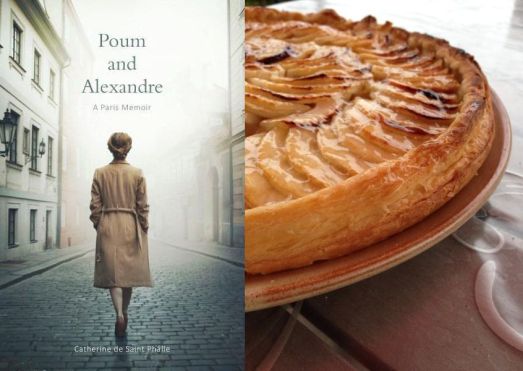Poum and Alexandre by Catherine de Saint Phalle is a curious book. It’s a memoir, focused on Saint Phalle’s Parisian childhood with her unconventional parents, Marie-Antoinette (Poum) and Alexandre –
“The patterns of the eccentrics are often rigid. My parents have many idiosyncrasies and any new ones become instant habits. Theirs is a disciplined madness.”
The book reads like a fairy tale. Told through the eyes of eight-year-old Saint Phalle, her stories are studded with references to Greek mythology, The Odyssey, the Magna Carta, visits to Givenchy, the Napoleonic Wars and the French Resistance.
“He talks the whole time about Alexander the Great, Constantine, Caesar, Julian the Apostate. He tells me of palaces and forests, galloping horses and raped women. His voice gathers momentum and his hands seize javelins and slave girls. He canters up hills where we stare at burning cities.”
These references – both fanciful and factual – provide context and focus for Saint Phalle’s impressions of her parents, their relationship and their own seemingly troubled history.
“My mother starts talking about a ‘situation’ and stares out at my father with her shipwrecked eyes. My father talks about William the Conqueror…”
Saint Phalle refers to her parents with a mixture of awe, amazement and confusion. Although clearly aware that her parents are unlike others, her words are free of judgement, and often humorous –
“…her energy returns. It always returns near Roman ruins.”
“…the huge stone ship of Chartres is ploughing through fields of wheat. Both my parents love Chartres and go there as you would dash to the chemist’s.”
Saint Phalle’s writing is enchanting and there are moments of pure poetry –
“But fear, not victory, is my mother’s real companion. It informs her behaviour and filters all her decisions.”
“Poum’s bedroom has the atmosphere of a Russian novel.”
Although it was easy to be swept along by the lovely writing, Saint Phalle reveals that troubled, obsessive Poum, and brave, charismatic Alexandre have secrets. Rather than becoming the crux of the story, these secrets simply provide context for Poum and Alexandre’s eccentricities. What remains is an intense, memorable ode to parents who were clearly adored.
“Once Alexandre tells me: ‘Listen, if anybody asks you about your father, just say: ‘My father is a knight surfing on the crest of a wave.”
“Poum is not an easy mother, either, but when I least expect it, with a glance, with a whiff of her scent as she passes, she pours gold in my cup. Of course, like fairy gold, it doesn’t happen very often or last very long – in a second it’s gone.”
3.5/5 Magical.
“My mother has tried her hand at cooking for the first time in her life. She has made a thousand-leafed pastry called a pâte feuilletée. She walks in with her towering oeuvre on a silver platter as if she was carrying the head of Saint John the Baptist. She presents it to my father and, as soon as he puts the knife through it, it collapses. We end up at a cafe down the road. Ensconced in a booth, they have a bottle of Bordeaux to celebrate her cooking.”
Pâte feuilletée is also known as puff pastry.


A thousand leafed pastry for your first cooking attempt? That is most definitely eccentric (and impressive, even if it did collapse)!
It sounds like an unreliable or romanticised memory to me.
She provides a great visual, doesn’t she?!
I’m certain I’m not along but anything in relation to Paris always intrigues me. I also require a puff pastry, immediately.
If you like reading about Paris, there are a few superb moments in this book (not overdone, just quintessentially Paris).
I’m entranced both by Phalle’s writing in the quotes you used and by the photo of that tart. I think I need both.
Pingback: The 2017 Stella Prize – my prediction | booksaremyfavouriteandbest
Pingback: April 2017 Round-up: Classics and Literary | Australian Women Writers Challenge Blog
Pingback: Nonfiction November – Reads Like Fiction | booksaremyfavouriteandbest